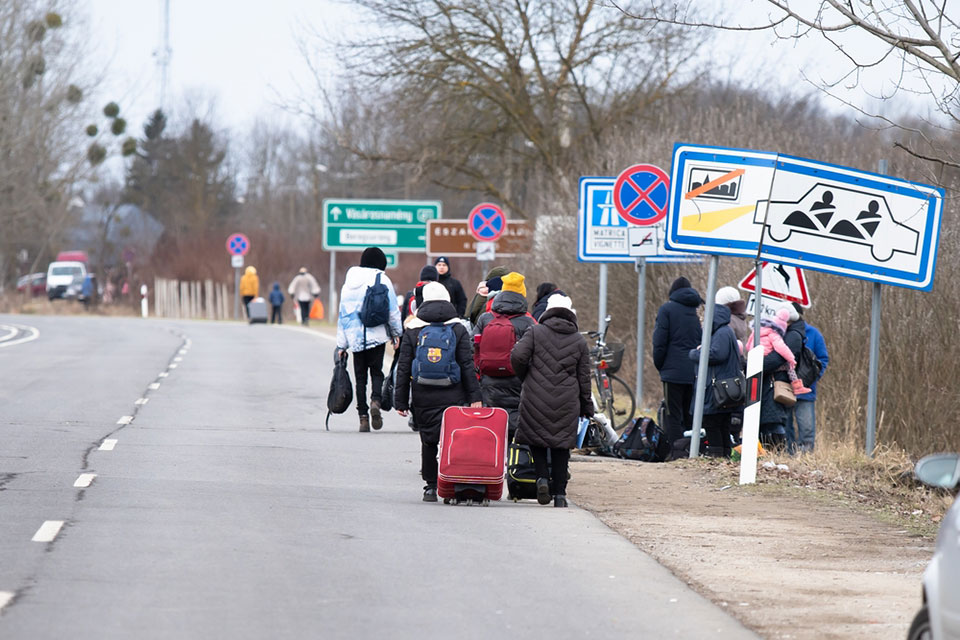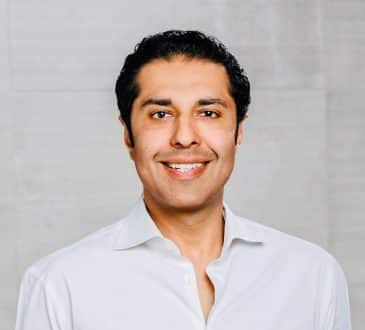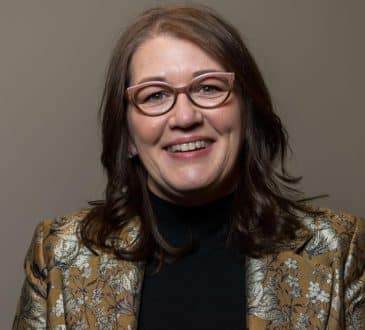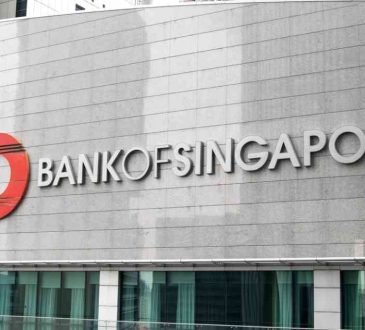Remarks From The Edge of The War Zone

This is not a typical CEOWORLD magazine article. Still, there are events whose significance cannot be ignored. My text – written in Warsaw, Poland, not far from the Ukrainian border – follows up on Dr. Joe Zamit-Lucia’s article “Tomorrow The World Will Not Return To Normal” (CEOWORLD Magazine, March 7, 2022).
Facts
- Ukraine (approximately 44 million population) gained independence in 1991. For decades, it had been part of Russia and the USSR. Kyiv, the capital of Ukraine with a population of approximately 3 million, located 700 km (430 miles) away from Warsaw and 1,200 km (740 miles) away from Berlin, is historically deemed to have been the cradle of Russian statehood.
Still, the individuality and at least partial independence of Ukraine were observed even during Soviet times: Ukraine and Belarus were the only two Soviet republics that were subjects of international law and the UN members (kind of illusive Soviet confederationism).
- Since 2014 Russia (approximately 144 million population) has been occupying Ukrainian Crimea. Actually, this situation has never been accepted by the international community, but we somehow used to turn a blind eye to it.
- On February 24, 2022, after joint Russian and Belarussian military maneuvers near Ukrainian borders, the Russian army invaded Ukraine from the east.
Since then, a regular war has been waged. Since Russian forces are not progressing as they might have expected, the war becomes more and more brutal and the aggression turns against civilians and civil objects, including hospitals, nurseries, and schools. Sieged Mariupol (with a population of 446 thousand) and Kharkiv (with a population of 1.4 million) have been subjected to heavy bombings, with the use of weapons banned by international law (such as thermobaric, phosphorus, and cluster bombs). Some other cities and towns in eastern and central Ukraine have been destroyed (e.g. Zhytomyr, 150 km / 90 miles away from Kyiv). Russian soldiers commit acts of regular terrorism (e.g. Ivan Fedorov (aged 33), Mayor of Melitopol was kidnapped by Russian soldiers on March 10). Similarly, war crimes are apparently committed by the Russian army (e.g. the bombing of the Mariupol nursery hospital on March 9). The Russian army is also trying to surround Kyiv, cutting its citizens off from electricity, heating, and water supplies.
- As of March 14, 2022, almost three million women and children fled Ukraine (men between 16 and 60 must not leave the country). The majority of them (approximately 1.7 million as of today) left for Poland, where they found temporary shelter with Polish families. The population of Warsaw increased by about 300 thousand over ten days. The UN predictions of five million war refugees seem to be too low. In any case, it is already the largest refugee crisis in Europe since WWII.
Overview
- It is estimated that approximately one million Ukrainians have been living and working in Poland to date. According to my personal observations and experience (Warsaw is only 260 km (170 miles) away from the Ukrainian border, so it has been and still is an obvious destination), Ukrainians were known as good-tempered people, focused on work, not in any way looking to emigrate. They took the money they earned to their families and homes in Ukraine, which remained their home country.
The war may change this attitude because although all the refugees I met planned to return home and to the families or relatives left behind, many of them will have nowhere to go. Rebuilding the country after such heavy war damage will be a long and extremely expensive project. After World War Two, reconstruction and the subsequent economic boom were only possible thanks to the Marshall Plan.
- The tragedy unfolds at several levels:
At the military level – the Russian army’s little progress, low morale, high losses (currently difficult to confirm) in men and equipment, and the targeting of civilian targets (which may be a change of strategy as a result of growing frustration in the ranks of the military and a tool for breaking the resistance of the Ukrainian government and blackmailing the West) are still surprising;
At the logistics level – military analysts indicate that the protracted invasion exceeds Russia’s logistics capabilities, while Ukraine can count on massive military and humanitarian support from the West;
At the socio-political level – the Russian society is in denial, and the public is not aware of the war started by Putin, which causes progressive alienation of Russia and the Russian people in the world. In Ukraine, on the other hand, the war has united the nation, and the defense of the homeland seems to be the founding myth of democratic Ukraine. Much of the credit for this goes to President Volodymyr Zelenskyy (aged 44), who has amazed the world with his determination, maturity, and communication skills. According to commentators, President Zelenskyy has become a Ukrainian George Washington;
At the communication level – at this level, on the aggressor’s side, there is Russia with its imperialistic aspirations, with a society subjected to indoctrination and propaganda for many years, and alienated rulers. On the other side, there are defenders of Western values skillfully creating a message to the international community. The message is strengthened not only by President Zelenskyy, but also, among others, by the Klitschko brothers, boxing stars involved in the defense of Ukraine (the older brother, Vitali, is the mayor of Kyiv). The Internet community (Anonymus) also took the side of Ukraine. It is also the first conflict in which information is not communicated through traditional media only, and indeed social media channels and their real-time reports and recordings of ordinary citizens prevail. Due to the dispersed information and inability to verify it, there is also a high risk of misinformation and of succumbing to skillful manipulation by Russia’s cyber units (so-called troll farms);
At the economic level – the Russian attack on Ukraine provoked a reaction from the West, which imposed unprecedented economic sanctions on Russia. The sanctions adopted by the US, EU, UK and Japan are extremely important, but despite their unprecedented scale (e.g. many Russian banks were cut off from the SWIFT system), they are applied with caution, due in part to Russia’s role as the source of supply of raw materials, and especially energy, to the European economies. Still, the following companies withdrew (in various ways) from activity in Russia: Mercedes-Benz, Ford, GM, Audi, BMW, VW, Renault, Nissan, Volvo, Ferrari, Siemens, Lidl, IKEA, Inditex, H&M, Dell, Apple, Visa, Mastercard, Equinor, BP, Exxon, Shell, TotalEnergis, Maersk, MSC, Boeing, Airbus, Disney, Netflix, Meta (Facebook), Google, Tik-Tok, LVHM, YSL, Balenciaga, Cartier, McDonalds, Coca-Cola, PepsiCo and many more. It is easier to list those that still do business in Russia, including LG Electronics, Bosch, Oriflame, Auchan, Leroy Merlin, Decathlon (this “list of shame” is getting shorter by the day). In retaliation, Russia has announced, among other things, that it abolished patent protection in its territory (which means the sanctioning of intellectual property theft). A factor not yet widely considered today is that Ukraine has been, and is, the breadbasket of the world. The war in Ukraine will throw global food supply chains into disarray, and a global famine could result in mass migration;
At the humanitarian level – which I have already described extensively above. In view of the scale of the humanitarian catastrophe, there is an urgent need to develop systemic mechanisms to support the refugees driven out of their homes by the war. No society (country), no matter how kind and empathic, will be able to absorb and provide social, living and health security for such masses of people fleeing genocide with small backpacks on their backs.
The bottom line is that, first, Russia is one of the nuclear-weapon states and there are four nuclear power plants in Ukraine (which voluntarily got rid of its nuclear warheads, after signing the Budapest Memorandum (1994) with the participation of Russia, the US, and the UK).
And second, according to Article 5 of the NATO Treaty, an attack against one NATO ally is considered as an attack against all allies and requires a response from NATO. On March 12, 2022, Russian missiles hit targets 25 km (15 miles) away from the Polish border. Poland is a member of NATO since 12 March 1999.
Written by Dr. Bartosz Marcinkowski.
Add CEOWORLD magazine to your Google News feed.
Follow CEOWORLD magazine headlines on: Google News, LinkedIn, Twitter, and Facebook.
This report/news/ranking/statistics has been prepared only for general guidance on matters of interest and does not constitute professional advice. You should not act upon the information contained in this publication without obtaining specific professional advice. No representation or warranty (express or implied) is given as to the accuracy or completeness of the information contained in this publication, and, to the extent permitted by law, CEOWORLD magazine does not accept or assume any liability, responsibility or duty of care for any consequences of you or anyone else acting, or refraining to act, in reliance on the information contained in this publication or for any decision based on it.
Copyright 2024 The CEOWORLD magazine. All rights reserved. This material (and any extract from it) must not be copied, redistributed or placed on any website, without CEOWORLD magazine' prior written consent. For media queries, please contact: info@ceoworld.biz
SUBSCRIBE NEWSLETTER









